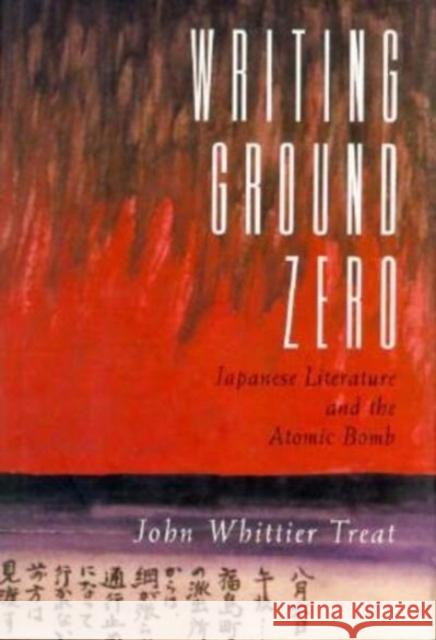Writing Ground Zero: Japanese Literature and the Atomic Bomb » książka
Writing Ground Zero: Japanese Literature and the Atomic Bomb
ISBN-13: 9780226811772 / Angielski / Twarda / 1995 / 508 str.
Writing Ground Zero: Japanese Literature and the Atomic Bomb
ISBN-13: 9780226811772 / Angielski / Twarda / 1995 / 508 str.
(netto: 392,80 VAT: 5%)
Najniższa cena z 30 dni: 407,40
ok. 30 dni roboczych.
Darmowa dostawa!
From Einstein and Truman to Sartre and Derrida, many have declared the atomic bombing of Hiroshima and Nagasaki to be decisive events in human history. None, however, have more acutely understood or perceptively critiqued the consequences of nuclear war than Japanese writers. In this first complete study of the nuclear theme in Japanese intellectual and artistic life, John Whittier Treat shows how much we have to learn from Japanese writers and artists about the substance and meaning of the nuclear age.
Treat recounts the controversial history of Japanese public discourse around Hiroshima and Nagasaki--a discourse alternatively celebrated and censored--from August 6, 1945, to the present day. He includes works from the earliest survivor writers, including Hara Tamiki and Ota Yoko, to such important Japanese intellectuals today as Oe Kenzaburo and Oda Makoto. Treat argues that the insights of Japanese writers into the lessons of modern atrocity share much in common with those of Holocaust writers in Europe and the practitioners of recent poststructuralist nuclear criticism in America. In chapters that take up writers as diverse as Hiroshima poets, Tokyo critics, and Nagasaki women novelists, he explores the implications of these works for critical, literary, and cultural theory.
Treat summarizes the Japanese contribution to such ongoing international debates as the crisis of modern ethics, the relationship of experience to memory, and the possibility of writing history. This Japanese perspective, Treat shows, both confirms and amends many of the assertions made in the West on the shift that the death camps and nuclear weapons have jointly signaled for the modern world and for the future.
Writing Ground Zero will be read not only by students of Japan, but by all readers concerned with the fate of culture after the fact of nuclear war in our time.











